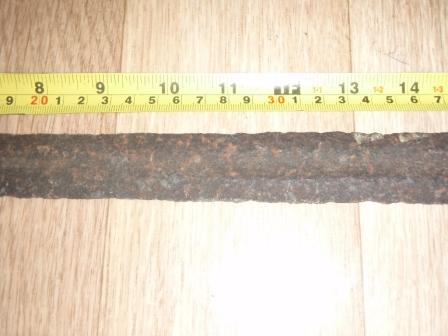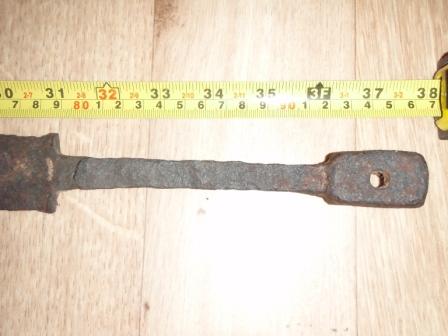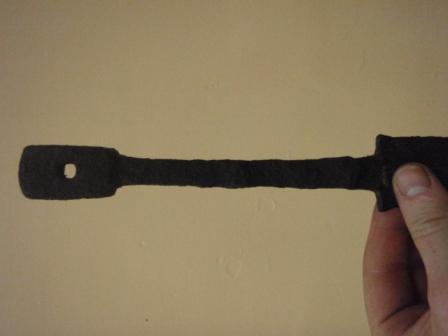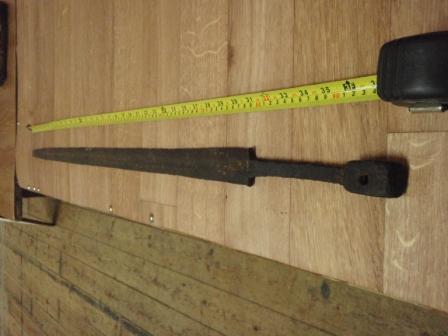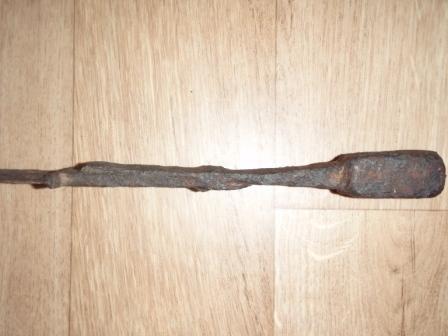Posts: 116 Location: The South Of England
Mon 02 Jan, 2012 5:20 am
Hi Ronan.
what you have there is the remains of an Omani longsword usually called a Kattara.
The tang hasn't been repaired, it has been lengthened.
The short tanged blade is of the type used in the famous Kaskara's of N.Africa/Sudan.
This type of blade was commonly either made in Africa or traded from Europe and the tradition is a long one, some are extremely old. Similar types of trade and native blades (broadsword style) are also seen on Manding swords and Takouba.
To illustrate I'll attach a couple of pictures of bare Kaskara blades.
Among examples of these blades, both multiple and single fullers are commonplace. Among the single wide fullered variety, both long and short.
The Pommel is however distinctive to the Omani Kattara (some call them Saif when straight, but I find this unnecessarily confusing). I attach pictures of complete Omani swords for reference.
Best
Gene
 Attachment: 69.32 KB
Attachment: 69.32 KB

 Attachment: 216.53 KB
Attachment: 216.53 KB
[ Download ]
 Attachment: 82.93 KB
Attachment: 82.93 KB
[ Download ]
 Attachment: 118.74 KB
Attachment: 118.74 KB
[ Download ]
